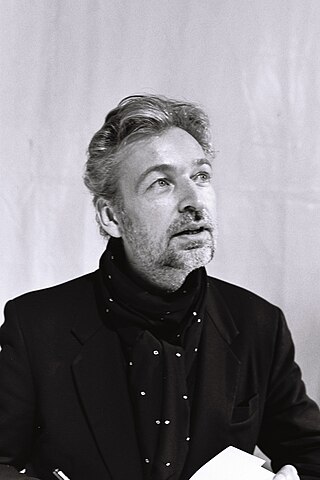Related Research Articles

The Prix Goncourt is a prize in French literature, given by the académie Goncourt to the author of "the best and most imaginative prose work of the year". The prize carries a symbolic reward of only 10 euros, but results in considerable recognition and book sales for the winning author. Four other prizes are also awarded: prix Goncourt du Premier Roman, prix Goncourt de la Nouvelle, prix Goncourt de la Poésie (poetry) and prix Goncourt de la Biographie (biography). Of the "big six" French literary awards, the Prix Goncourt is the best known and most prestigious. The other major literary prizes include the Grand Prix du roman de l'Académie française, the Prix Femina, the Prix Renaudot, the Prix Interallié and the Prix Médicis.

Serge Bramly is a French-language writer and essayist.

Jean-Christophe Rufin is a French doctor, diplomat, historian, globetrotter and novelist. He is the president of Action Against Hunger, one of the earliest members of Médecins Sans Frontières, and a member of the Académie française.

Santiago Amigorena is an Argentine screenwriter, film producer, film director and writer.
The prix Interallié, also known simply as l'Interallié, is an annual French literary award, awarded for a novel written by a journalist.

Franz-Olivier Giesbert is an American-born French journalist, author, and television presenter.

Laurence Ruel, known by her pen name Camille Laurens, is a French writer and winner of the 2000 Prix Femina for Dans ces bras-là. Laurens is a member of the Académie Goncourt.

Mathias Énard is a French novelist. He studied Persian and Arabic and spent long periods in the Middle East. He has lived in Barcelona for about fifteen years, interrupted in 2013 by a writing residency in Berlin. He won several awards for Zone, including the Prix du Livre Inter and the Prix Décembre, and won the Prix Goncourt/Le Choix de l’Orient, the Prix littéraire de la Porte Dorée, and the Prix du Roman-News for Rue des Voleurs. He won the 2015 Prix Goncourt for Boussole (Compass). In 2020 he was Friedrich Dürrenmatt Guest Professor for World Literature at the University of Bern.

Éric Neuhoff is a French novelist and journalist. He debuted in 1982 a journalist at Le Quotidien de Paris and used a style nicknamed "néo-hussard", after the Hussards movement of the 1950s. He thus became associated with writers such as Denis Tillinac, Patrick Besson and Didier Van Cauwelaert, who debuted around the same time and used a similar style. He received the 1990 Roger Nimier Prize, and has received awards such as the Prix des Deux Magots, Prix Interallié and Grand Prix du roman de l'Académie française.
Kléber Haedens, was a French novelist and journalist. He was a monarchist and a member of the Action Française in the 1930s. During World War II he worked as a secretary for Charles Maurras. He was a friend of Antoine Blondin, Michel Déon and Roger Nimier, and closely linked to the Hussards movement in post-war France. He received the Prix Interallié in 1966 for L'été finit sous les tilleuls and the Grand Prix du roman de l'Académie française in 1974 for Adios.

Yannick Haenel is a French writer, cofounder of the literary magazine Ligne de risque.

Nathalie Léger is a writer and the executive director of the Institute for Contemporary Publishing Archives.
Thibault Tassin de Montaigu is a French writer and journalist.
The Prix Emmanuel Roblès, readers's prize of Blois, is a French literary award established in 1990 whose aim is to reward an author of first novel. It is baptized as a tribute to writer Emmanuel Robles.

Grégoire Delacourt is a French advertiser and writer.

Karine Tuil, is a French novelist who has written several award-winning novels in French and English. Her works have themes ranging from marriage and Jewish identity to detention centers and corporate politics.

Serge Joncour is a French novelist and screenwriter. He was born in Paris and studied philosophy at university. His debut novel UV was published in 1998. Notable books include:

Éric Reinhardt is a French writer and publisher currently living in Paris.

Emmanuelle Bayamack-Tam is a French writer. She also writes under the pseudonym Rebecca Lighieri. In 2022, she was awarded the Prix Médicis for her novel La Treizième Heure.

Les Choses humaines is the eleventh novel by French author Karine Tuil, published by Éditions Gallimard on 22 August 2019. It was awarded the Prix Interallié and Prix Goncourt des lycéens. In 2021, the novel was adapted into a film of the same name. The novel has not yet received an English translation.
References
- ↑ Site des Editions POL, Biographie
- ↑ Eric Aeschimann. "Mathias Menegoz, l'ingénu des Carpates" . Retrieved 30 January 2017.
- ↑ AFP. "Le prix Interallié à Mathias Menegoz pour son premier roman, "Karpathia"" . Retrieved 30 January 2017.